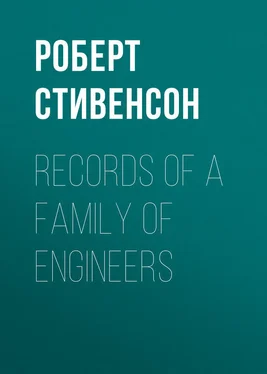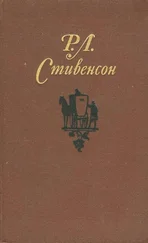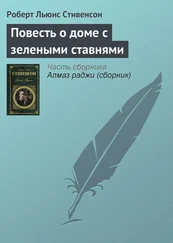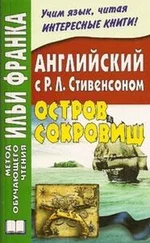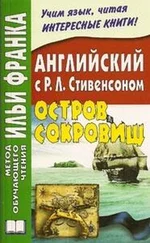Роберт Стивенсон - Records of a Family of Engineers
Здесь есть возможность читать онлайн «Роберт Стивенсон - Records of a Family of Engineers» — ознакомительный отрывок электронной книги совершенно бесплатно, а после прочтения отрывка купить полную версию. В некоторых случаях можно слушать аудио, скачать через торрент в формате fb2 и присутствует краткое содержание. Жанр: literature_19, foreign_antique, foreign_prose, Биографии и Мемуары, на английском языке. Описание произведения, (предисловие) а так же отзывы посетителей доступны на портале библиотеки ЛибКат.
- Название:Records of a Family of Engineers
- Автор:
- Жанр:
- Год:неизвестен
- ISBN:нет данных
- Рейтинг книги:3 / 5. Голосов: 1
-
Избранное:Добавить в избранное
- Отзывы:
-
Ваша оценка:
- 60
- 1
- 2
- 3
- 4
- 5
Records of a Family of Engineers: краткое содержание, описание и аннотация
Предлагаем к чтению аннотацию, описание, краткое содержание или предисловие (зависит от того, что написал сам автор книги «Records of a Family of Engineers»). Если вы не нашли необходимую информацию о книге — напишите в комментариях, мы постараемся отыскать её.
Records of a Family of Engineers — читать онлайн ознакомительный отрывок
Ниже представлен текст книги, разбитый по страницам. Система сохранения места последней прочитанной страницы, позволяет с удобством читать онлайн бесплатно книгу «Records of a Family of Engineers», без необходимости каждый раз заново искать на чём Вы остановились. Поставьте закладку, и сможете в любой момент перейти на страницу, на которой закончили чтение.
Интервал:
Закладка:
August 1786 was the date of his chief advancement, when, having designed a system of oil lights to take the place of the primitive coal fires before in use, he was dubbed engineer to the newly-formed Board of Northern Lighthouses. Not only were his fortunes bettered by the appointment, but he was introduced to a new and wider field for the exercise of his abilities, and a new way of life highly agreeable to his active constitution. He seems to have rejoiced in the long journeys, and to have combined them with the practice of field sports. ‘A tall, stout man coming ashore with his gun over his arm’ – so he was described to my father – the only description that has come down to me by a light-keeper old in the service. Nor did this change come alone. On the 9th July of the same year, Thomas Smith had been left for the second time a widower. As he was still but thirty-three years old, prospering in his affairs, newly advanced in the world, and encumbered at the time with a family of children, five in number, it was natural that he should entertain the notion of another wife. Expeditious in business, he was no less so in his choice; and it was not later than June 1787 – for my grandfather is described as still in his fifteenth year – that he married the widow of Alan Stevenson.
The perilous experiment of bringing together two families for once succeeded. Mr. Smith’s two eldest daughters, Jean and Janet, fervent in piety, unwearied in kind deeds, were well qualified both to appreciate and to attract the stepmother; and her son, on the other hand, seems to have found immediate favour in the eyes of Mr. Smith. It is, perhaps, easy to exaggerate the ready-made resemblances; the tired woman must have done much to fashion girls who were under ten; the man, lusty and opinionated, must have stamped a strong impression on the boy of fifteen. But the cleavage of the family was too marked, the identity of character and interest produced between the two men on the one hand, and the three women on the other, was too complete to have been the result of influence alone. Particular bonds of union must have pre-existed on each side. And there is no doubt that the man and the boy met with common ambitions, and a common bent, to the practice of that which had not so long before acquired the name of civil engineering.
For the profession which is now so thronged, famous, and influential, was then a thing of yesterday. My grandfather had an anecdote of Smeaton, probably learned from John Clerk of Eldin, their common friend. Smeaton was asked by the Duke of Argyll to visit the West Highland coast for a professional purpose. He refused, appalled, it seems, by the rough travelling. ‘You can recommend some other fit person?’ asked the Duke. ‘No,’ said Smeaton, ‘I’m sorry I can’t.’ ‘What!’ cried the Duke, ‘a profession with only one man in it! Pray, who taught you?’ ‘Why,’ said Smeaton, ‘I believe I may say I was self-taught, an’t please your grace.’ Smeaton, at the date of Thomas Smith’s third marriage, was yet living; and as the one had grown to the new profession from his place at the instrument-maker’s, the other was beginning to enter it by the way of his trade. The engineer of to-day is confronted with a library of acquired results; tables and formulae to the value of folios full have been calculated and recorded; and the student finds everywhere in front of him the footprints of the pioneers. In the eighteenth century the field was largely unexplored; the engineer must read with his own eyes the face of nature; he arose a volunteer, from the workshop or the mill, to undertake works which were at once inventions and adventures. It was not a science then – it was a living art; and it visibly grew under the eyes and between the hands of its practitioners.
The charm of such an occupation was strongly felt by stepfather and stepson. It chanced that Thomas Smith was a reformer; the superiority of his proposed lamp and reflectors over open fires of coal secured his appointment; and no sooner had he set his hand to the task than the interest of that employment mastered him. The vacant stage on which he was to act, and where all had yet to be created – the greatness of the difficulties, the smallness of the means intrusted him – would rouse a man of his disposition like a call to battle. The lad introduced by marriage under his roof was of a character to sympathise; the public usefulness of the service would appeal to his judgment, the perpetual need for fresh expedients stimulate his ingenuity. And there was another attraction which, in the younger man at least, appealed to, and perhaps first aroused, a profound and enduring sentiment of romance: I mean the attraction of the life. The seas into which his labours carried the new engineer were still scarce charted, the coasts still dark; his way on shore was often far beyond the convenience of any road; the isles in which he must sojourn were still partly savage. He must toss much in boats; he must often adventure on horseback by the dubious bridle-track through unfrequented wildernesses; he must sometimes plant his lighthouse in the very camp of wreckers; and he was continually enforced to the vicissitudes of outdoor life. The joy of my grandfather in this career was strong as the love of woman. It lasted him through youth and manhood, it burned strong in age, and at the approach of death his last yearning was to renew these loved experiences. What he felt himself he continued to attribute to all around him. And to this supposed sentiment in others I find him continually, almost pathetically, appealing; often in vain.
Snared by these interests, the boy seems to have become almost at once the eager confidant and adviser of his new connection; the Church, if he had ever entertained the prospect very warmly, faded from his view; and at the age of nineteen I find him already in a post of some authority, superintending the construction of the lighthouse on the isle of Little Cumbrae, in the Firth of Clyde. The change of aim seems to have caused or been accompanied by a change of character. It sounds absurd to couple the name of my grandfather with the word indolence; but the lad who had been destined from the cradle to the Church, and who had attained the age of fifteen without acquiring more than a moderate knowledge of Latin, was at least no unusual student. And from the day of his charge at Little Cumbrae he steps before us what he remained until the end, a man of the most zealous industry, greedy of occupation, greedy of knowledge, a stern husband of time, a reader, a writer, unflagging in his task of self-improvement. Thenceforward his summers were spent directing works and ruling workmen, now in uninhabited, now in half-savage islands; his winters were set apart, first at the Andersonian Institution, then at the University of Edinburgh to improve himself in mathematics, chemistry, natural history, agriculture, moral philosophy, and logic; a bearded student – although no doubt scrupulously shaved. I find one reference to his years in class which will have a meaning for all who have studied in Scottish Universities. He mentions a recommendation made by the professor of logic. ‘The high-school men,’ he writes, ‘and bearded men like myself , were all attention.’ If my grandfather were throughout life a thought too studious of the art of getting on, much must be forgiven to the bearded and belated student who looked across, with a sense of difference, at ‘the high-school men.’ Here was a gulf to be crossed; but already he could feel that he had made a beginning, and that must have been a proud hour when he devoted his earliest earnings to the repayment of the charitable foundation in which he had received the rudiments of knowledge.
In yet another way he followed the example of his father-in-law, and from 1794 to 1807, when the affairs of the Bell Rock made it necessary for him to resign, he served in different corps of volunteers. In the last of these he rose to a position of distinction, no less than captain of the Grenadier Company, and his colonel, in accepting his resignation, entreated he would do them ‘the favour of continuing as an honorary member of a corps which has been so much indebted for your zeal and exertions.’
Читать дальшеИнтервал:
Закладка:
Похожие книги на «Records of a Family of Engineers»
Представляем Вашему вниманию похожие книги на «Records of a Family of Engineers» списком для выбора. Мы отобрали схожую по названию и смыслу литературу в надежде предоставить читателям больше вариантов отыскать новые, интересные, ещё непрочитанные произведения.
Обсуждение, отзывы о книге «Records of a Family of Engineers» и просто собственные мнения читателей. Оставьте ваши комментарии, напишите, что Вы думаете о произведении, его смысле или главных героях. Укажите что конкретно понравилось, а что нет, и почему Вы так считаете.
